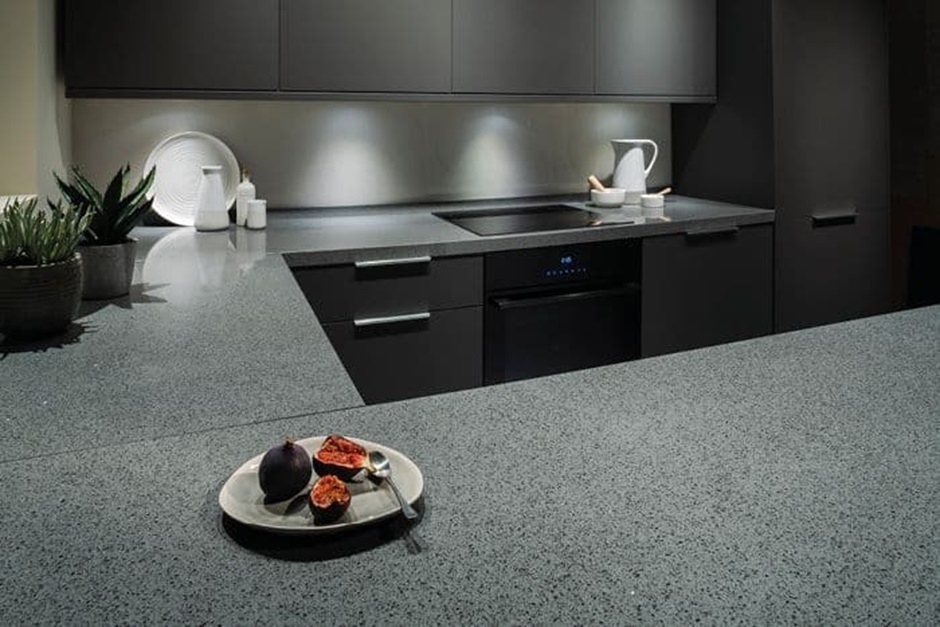Choosing the right kitchen countertops will alter the room’s appearance and functionality. Quartz worktops are popular among homeowners who want a durable, low-maintenance, and attractive surface despite the many options. Compare quartz worktops to different kitchen design materials to make an informed choice.
Quartz vs Granite:
Both materials are durable. With a broader selection of colours and patterns to choose from, quartz also provides more creative freedom. Those looking for a more organic look could like granite. However, quartz is usually the better choice because of its practicality and low care requirements.
Marble vs. Quartz:
Marble’s veining designs and ageless charm make it alluring, but it needs periodic cleaning as well as polishing to appear great. Quartz, unlike marble, absorbs stains and frequent traffic, which makes it ideal for active kitchens. Quartz may replace marble for homes that seek design and practicality. It’s a win-win since it looks like marble and is resilient and simple to look after.
Quartz vs. Solid Surface:
Comparing Quartz vs. Laminate: Laminate worktops provide a more inexpensive alternative to quartz and come in many hues and styles. However, they may wear out faster. Quartz is stronger than laminate and can endure scratches, chipping, and dampness.
Compare quartz vs wood. Wood worktops are beautiful and warm, but they need extensive maintenance to prevent harm from water, staining, and bacterial growth. Quartz may replace wood and is more durable and attractive, yet wood is still appealing.
The attributes of a quartz slab
These days, most people who build countertops use composite quartz stones. There will be relatively few seams in your countertop surface because each quartz slab is enormous. Quartz makes it easy to choose the perfect colour scheme, even if granite has a lot of aesthetic alternatives of its own. Quartz has been chosen because of its many other desirable features.
Super long life of quartz surface
The patterns and textures of engineered quartz slabs are quite similar to those of real stones. You may put their tremendous practical worth to good use in a variety of contexts. The countertop will retain its worth throughout time, and these germs won’t be able to permeate it.
A greener choice
Particles crushed into engineered quartz slabs make up about 95–97% of the material. Pigments and resins make up almost no more than 5–10% of the total makeup. Additionally, stains may be readily removed to maintain a clean surface. The stone cannot absorb liquids since it is not porous. Also, it doesn’t easily become etched or damaged. Remove stains with a mild soapy solution. Stone sealers are unnecessary.
Surface made of heat-tolerant quartz.
One of the most notable features of quartz countertops is their very great heat resistance. The quartz countertop is completely safe, even if you accidentally set a hot pan on it. However, when resins are used sparingly, the stone may appear somewhat discoloured.
Concealed washbasin
Your sink’s material won’t matter when you put it under the quartz countertop.
Quartz vs cultured marble- What is the superior option for countertops?
Resilience: Personalised marble countertops are exceptionally robust and long-lasting. Resin binders work nicely with marble mineral powder. The durability of marble is lesser than that of quartz. In any case, the stone will work fine as a countertop. Quartz is a reliable option if you’re looking for a surface that won’t easily get scratched.
In terms of aesthetics, you may choose marble countertops in a rainbow of colours with a custom design. The striking veining gives them the appearance of genuine marble slabs.
Quartz countertops might be an excellent substitute if you value precision.
Even though cultured marble stones are man-made, their porous surface makes them easy to clean and maintain. Resealing the stones is unnecessary. Marble countertops give an elegant appearance when installed correctly.
A gentle microfiber cloth and some soapy water are all that’s needed to clean quartz. Your stones are not safe to be cleaned with abrasive materials.
As with other stones, marble may be harmed by acidic liquids.
Despite their peculiarities, both stones are visually appealing. Choose the best stone for your home’s makeover while you’re working on it.
Which is better: quartz or granite?
A synthetic composite material that mimics the appearance of real stones is known as faux granite. Crystals of quartz, broken stones, acrylics, colours, and powdered marble are the ingredients that go into making this stone. Faux granite and marble are a great substitute for their natural counterparts. The synthetic form also contains quartz.
The process of mining for granite requires a lot of energy. That being said, you can rely on composite stones to be environmentally friendly. The surface could get stained by acids and oils. Remember to reseal the countertop annually as well.
However, much like any other surface, a quartz slab requires regular cleaning to protect it from spillage. Your countertop will last for years to come with regular care.
As an advantage, quartz lasts longer and doesn’t chip as easily as granite. Unlike granite, which may harbour germs, this countertop material is impermeable.
What factors should you consider while selecting countertop materials?
Consider the following factors while making your choice: Design and colour:
Make a bold fashion statement with your kitchen island. Materials with a high level of elegance are available to you.
Material dimensions and form:
Check the slab’s size and length carefully.
Duration: The greatest countertop material is durable. Choose a scratch-resistant kitchen countertop.
Conclusion
Due to its durability, attractiveness, and ease of maintenance, quartz countertops are preferred as kitchen materials. Quartz is a great material for sturdy and attractive kitchen countertops. For a smart purchase that improves your kitchen’s design and performance for years, examine your preferences.

